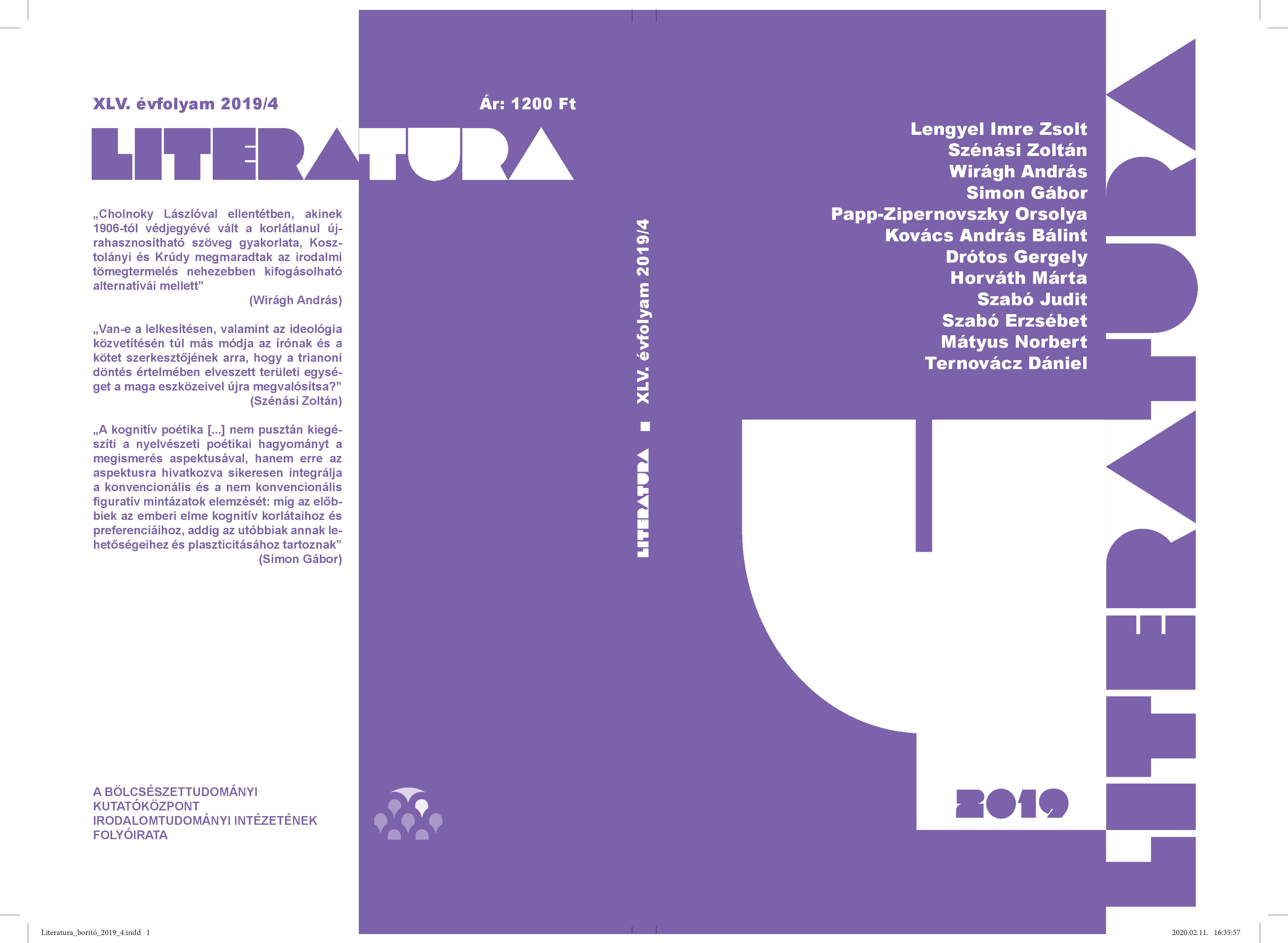Miért fogadjuk el a „harmadik személyű elbeszélőnek” tulajdonított narratív szöveget igaznak?
A hagyományos, a klasszikus és a kognitív megközelítés
Absztrakt
On the „third-person narrator”
The aim of the present paper is to discuss the question of why readers accept a literary narrative discourse attributed to an “omniscient third-person narrator” as unconditionally true. The study surveys the traditional and classical concepts of the third-person narrator, discusses their flaws, and then develops a cognitive approach. It argues for the thesis that the third-person narrator does not exist. The sentences assigned to him represent the architecturally true, unmarked information of the semiotic system in question.



